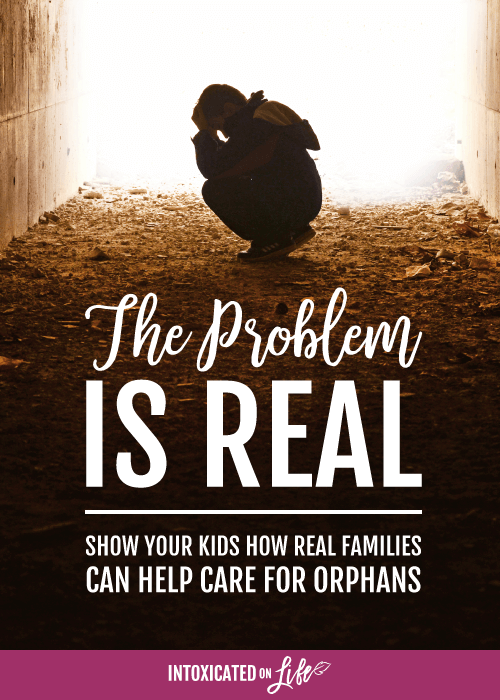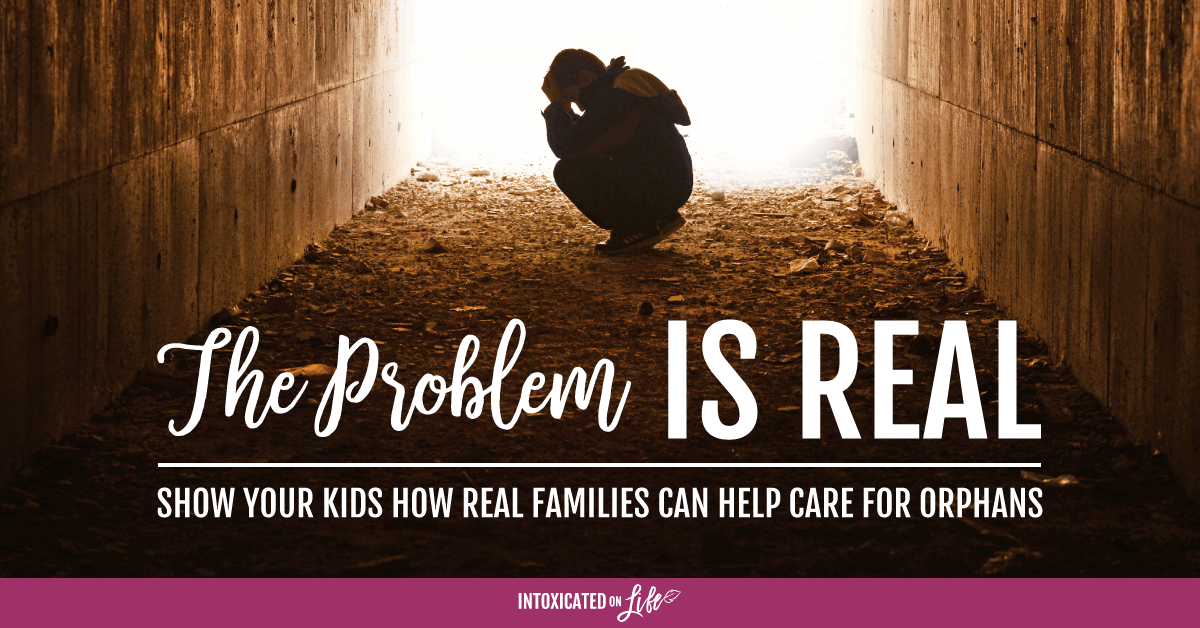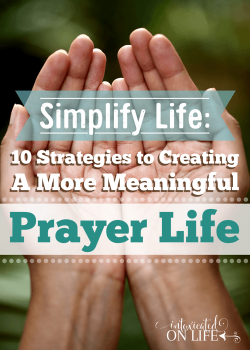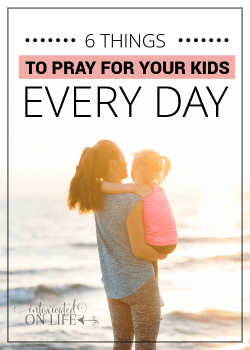It has been said that there’s a worldwide orphan epidemic.
More than 143 million children are in orphanages, in foster care, or on the streets.
So why am I presenting you with this information? Many readers of this website are parents, and I know you’re doing your best to bring up your family in a way that honors God. You have a lot on your plate, and a lot on your mind. After all, it’s far from easy to raise your own kids these days, much less worry about the seemingly hopeless plight of someone else’s.

Plus, it’s not easy to talk about orphans, is it? And when I throw out a number like 143 million…well, that number is pretty much impossible to fathom. Even pointing out this very high number exceeds the entire population of Russia doesn’t help us really grasp it.
Does one person’s contribution really make a difference in the vast sea of parentless children? It hardly seems so. Even if one person adopts a whopping dozen orphans, that still leaves 143 million minus twelve. I’m no pro when it comes to statistics, but I think that would be called a negligible difference, which basically means that it’s not enough to matter.
A problem this big can make us feel pretty helpless. And something about feeling helpless makes it easier to just bury our heads in the sand and pretend that we aren’t aware of such a huge problem. It feels nicer to stick our fingers in our ears and close our eyes and pretend that this enormous problem that we’re helpless to solve doesn’t exist.
But it does exist. So why should we care when it feels like there’s so little we can do? And just as important, why should we teach our children to care?
We should care because God does.
Here are a few Scriptures where He reveals to us His heart for orphans:
“Defend the poor and fatherless: do justice to the afflicted and needy.” (Psalm 82:3)
“Learn to do right! Seek justice, encourage the oppressed. Defend the cause of the fatherless, plead the case of the widow.” (Isaiah 1:17)
“The LORD watches over the alien and sustains the fatherless and the widow, but He frustrates the ways of the wicked.” (Psalm 146:9)
“A father of the fatherless and a judge for the widows, Is God in His holy habitation.” (Psalm 68:5)
“Pure and undefiled religion in the sight of our God and Father is this: to visit orphans and widows in their distress, and to keep oneself unstained by the world.” (James 1:27)
No, the orphan epidemic is not a problem one person can solve.
But the good news is that you and your family can absolutely make a significant impact. And if a whole bunch of families like yours and mine decided we were each going to do our small part, then we might just change the world.
So how can you get started? I’m so glad you asked.
6 Ways Families Can Impact the Orphan Epidemic
1. Care.
This seems so obvious. I mean, none of us would say, “I don’t care about orphans.” But if we continue ignoring the issue because it seems too big, we’re creating a hard shell around our hearts to protect ourselves from discomfort, instead of allowing our hearts to beat strong and hard for the fatherless, as our Heavenly Father’s does.
2. Educate.
This starts with educating ourselves. It might include some of the following steps:
- Familiarize yourself with what the Bible has to say about orphans.
- Find and follow organizations that work in foster care or adoption on social media.
- Look for and subscribe to the blogs of one or two of these ministries.
- Develop a closer relationship with a foster or adoptive family you’re acquainted with.
Once we increase our own understanding, we can become a source of education for others, including our families. Some points of family discussion could include:
- What “orphan” means, and how different cultures handle the care of orphans (orphanages, foster care, or kinship placement, to name a few.)
- What the Bible says about orphans.
- God’s adoption of us as His children.
- Putting ourselves in the shoes of an orphan or foster child, and talking through what life might be like.
3. Pray.
Praying for orphans provides a great opportunity to teach our children that prayer is always the best thing we can do for someone, whether or not there’s more we can do. You might consider praying through this guide, or open your Bible and pray for orphans using God’s Word as a springboard.
4. Give.
A few ways families can contribute to the physical needs of orphans include:
- Support an orphan directly through a Christian organization.
- Donate to ministries that support orphans.
- Give to a family you know who is saving to fund an adoption, or give to an organization that provides grants for adoptive families.
- Give gently used clothing or toys to a foster or adoptive family.
5. Support.
Giving money and material goods for the physical care of orphans is important. Giving your time and energy to support those who are caring for them is just as important. If you’re not called by God to foster or adopt, pray about what God would have you to do in support of those who are called to this difficult work. Your efforts will help protect them from burnout, enabling them to care for more children over a longer period of time.
- Offer to babysit for a foster or adoptive family for an evening or even a weekend.
- Prepare a meal for one of these families.
- Befriend a foster or adoptive family. Maybe even invite them to your home for a meal, extending fellowship and encouragement.
- Be a mentor to a foster or adopted child you know.
6. Foster and/or adopt.
No, this is not for everyone. But I believe God wants more Christians to foster and adopt than those who are currently doing so. Would you just tell the Lord that you’re willing, if He calls you? And if even that is too much, ask Him to give you that willingness as you continue to walk with Him.
An Impossible Task?
Having a meaningful, positive impact on 143 million orphans is surely an impossible task. But we serve the God of the impossible (Matthew 19:26) who invites us to step out in faith and join Him at work, and then grants us the incredible privilege of seeing the miraculous unfold. And I can’t think of a more exciting adventure for our kids to behold.











Leave a Comment